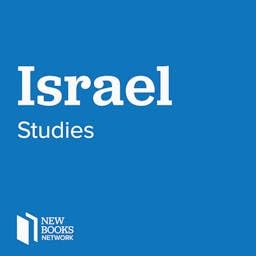In this interview, Yardena Schwartz discusses her book Ghosts of a Holy War: The 1929 Massacre in Palestine That Ignited the Arab-Israeli Conflict, offering a nuanced exploration of the 1929 Hebron massacre and its enduring impact on the region’s history and present-day realities. Through a conversation that weaves personal narrative, historical analysis, and contemporary reflection, Schwartz illuminates how the events of 1929—when nearly 70 Jewish residents of Hebron were killed by their Arab neighbors—became a pivotal moment in the Arab-Israeli conflict. When the Shainberg family in Memphis, Tennessee, discovers a box of century-old letters from their deceased uncle David in their attic, a journey begins: not only to learn about the young man who wrote the letters from the holy city of Hebron in British Mandate Palestine, but about the massacre that took his life in 1929. Award-winning journalist Yardena Schwartz draws from these letters, along with extensive research and wide-ranging interviews of Israelis and Palestinians now living in Hebron, to tell a timely, captivating narrative. In David’s last letter home, on August 20, 1929 he wrote about a visit to the Western Wall in Jerusalem and said, “as we walked along Jerusalem’s streets, we could almost imagine the streams of Jewish blood flowing at our feet, the horrible scenes of slaughter. Jewish sages, budding youth, tender babes in their mother’s arms, all killed by the barbaric sword of the enemy". He was describing the slaughter from the Roman invasion of Jerusalem - yet just a few days later those same words could have been used to describe the scene in Hebron where David lost his life. The interview delves into the complexities of Hebron’s past, once a city marked by coexistence, and the forces—propaganda, incitement, and shifting political landscapes—that transformed it into a symbol of division. Schwartz draws connections between the incitement and misinformation that fueled the violence in 1929 and the echoes of these dynamics in more recent events, such as the October 7, 2023, Hamas attacks. She emphasizes the importance of challenging false narratives and understanding the human stories behind historical tragedies. Throughout the conversation, Schwartz reflects on the challenges of researching and recounting such a fraught history, the erasure and distortion of memory in both Jewish and Arab communities, and the enduring hope for peace despite a century of conflict. The interview provides listeners with a compelling entry point into the tangled roots of the Arab-Israeli conflict, highlighting why the lessons of 1929 remain urgently relevant today. Learn more about your ad choices. Visit megaphone.fm/adchoices Support our show by becoming a premium member! https://newbooksnetwork.supportingcast.fm/israel-studies
続きを読む
一部表示
 1 時間 3 分
1 時間 3 分 57 分
57 分 1 時間 13 分
1 時間 13 分 52 分
52 分 1 時間 1 分
1 時間 1 分 50 分
50 分 59 分
59 分 49 分
49 分
